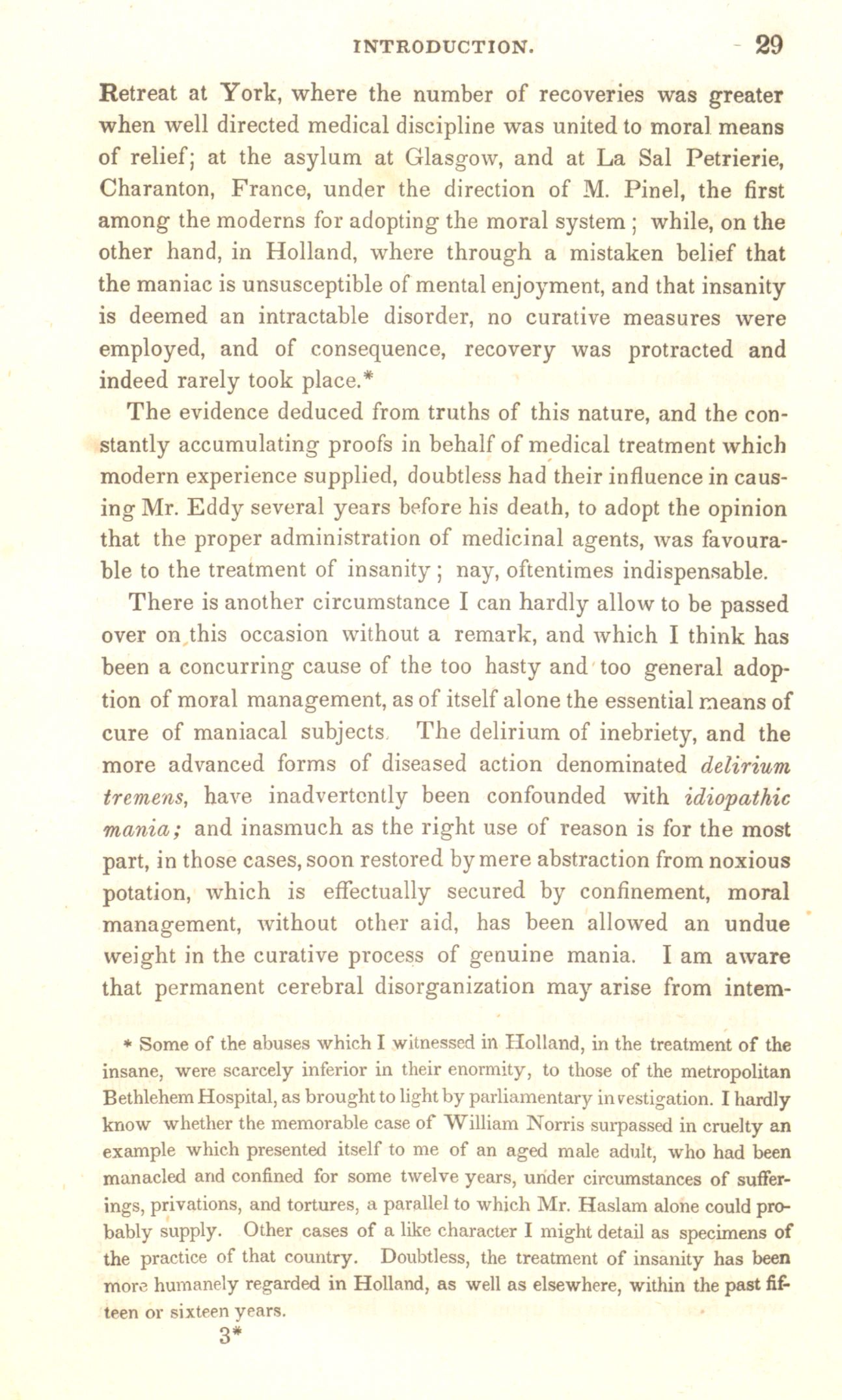Retreat at York
when well directed medical discipline was united to moral means
of relief; at the asylum at Glasgow
Charanton, France
among the moderns for adopting the moral system; while, on the
other hand, in Holland
the maniac is unsusceptible of mental enjoyment, and that insanity
is deemed an intractable disorder, no curative measures were
employed, and of consequence, recovery was protracted and
indeed rarely took place.*
Some of the abuses which I witnessed in Holland
insane, were scarcely inferior in their enormity, to those of the metropolitan
Bethlehem Hospital
know whether the memorable case of William Norris
example which presented itself to me of an aged male adult, who had been
manacled and confined for some twelve years, under circumstances of suffer-
ings, privations, and tortures, a parallel to which Mr. Haslam
bably supply. Other cases of a like character I might detail as specimens of
the practice of that country. Doubtless, the treatment of insanity has been
more humanely regarded in Holland
teen or sixteen years.
The evidence deduced from truths of this nature, and the
con-
stantly accumulating proofs in behalf of medical treatment
which
modern experience supplied, doubtless had their influence in
caus-
ing Mr. Eddy
that the proper administration of medicinal agents, was favoura-
ble to the treatment of insanity; nay, oftentimes indispensable.
There is another circumstance I can hardly allow to be passed
over
on this occasion without a remark, and which I think has
been a
concurring cause of the too hasty and too general adop-
tion of
moral management, as of itself alone the essential means of
cure of
maniacal subjects. The delirium of inebriety, and the
more advanced
forms of diseased action denominated delirium
tremens, have inadvertently been confounded with idiopathic
mania; and inasmuch as the
right use of reason is for the most
part, in those cases, soon
restored by mere abstraction from noxious
potation, which is
effectually secured by confinement, moral
management, without other
aid, has been allowed an undue
weight in the curative process of
genuine mania. I am aware
that permanent cerebral disorganization
may arise from intem-

